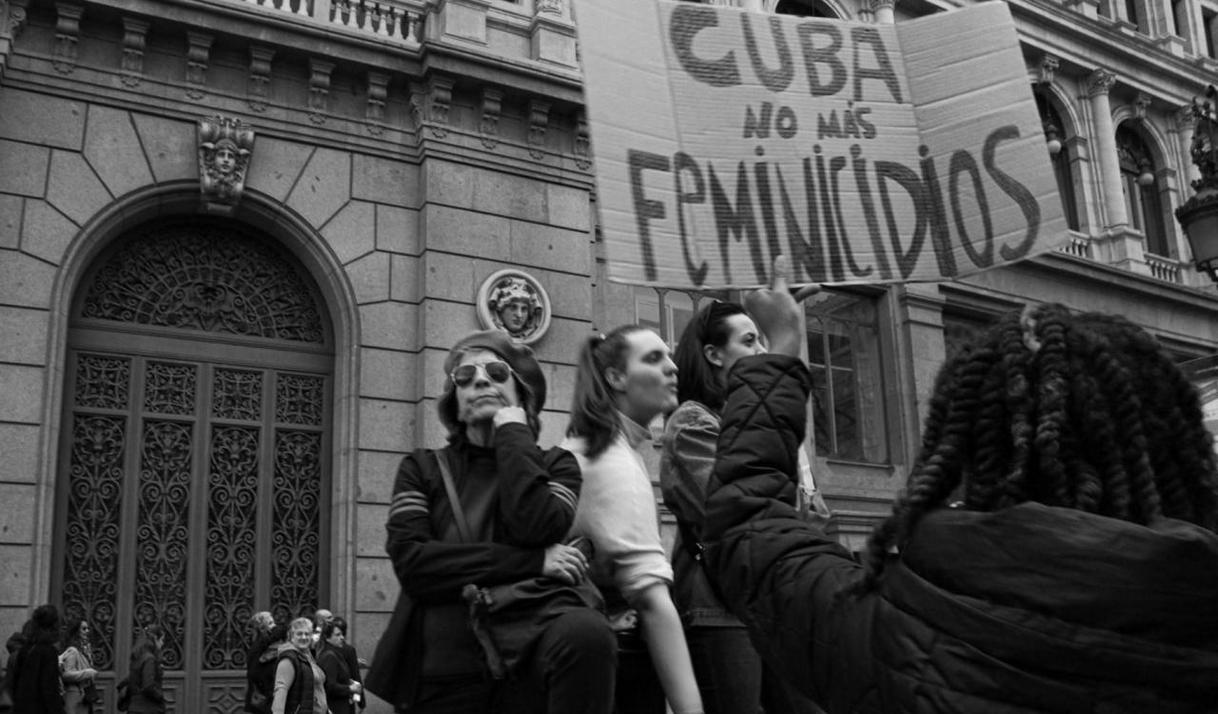On February 22, 2023, the Cuban Women’s Network published a video on its Twitter page in which its president, Elena Larrinaga, complained about the Cuban Government’s opposition to a request presented by the platform to hold a rally on March 8th in different parts of the country. “Hundreds of thousands of women will come together all over the world to ask for equal rights to men. Not in Cuba,” Larrinaga lamented.
Activists Elsa Isaac, Zuleydis Perez and Maria Elena Mir were responsible for taking the proposal, in the Network’s name, to authorities in Holguin, Guanabo (Havana) and Santiago de Cuba, respectively. Two of them – Perez and Mir – were arrested and interrogated at the same institutions they made the request; while Isaac was summoned by the Police on January 12th for having collected signatures needed to present the petition and was then held under house arrest two days later, to stop her from going to state offices.
Larrinaga clarified that the Government’s procedure was unjustified, as the requests had been conceived and presented “in strict compliance with the law.” Faced with the Government’s resistance to promote and guarantee a physical rally, the Cuban Women’s Network launched a call for a rally online, suggesting women post videos, stories and posts on their social media to share their demands. Physical rallies were also called in Madrid and New York.
Other organizations such as Alianza Cubana por la Inclusión, the feminist magazine Alas Tensas, as well as many activists and intellectuals such as Yanelys Nuñez, Iliana Hernandez, Yaima Pardo and Luz Escobar also joined the initiative on social media.
Before International Women’s Day, many independent platforms and media on the island had drawn attention to growing violence against women and had demanded a state of emergency be proclaimed, as there has been a high number of femicide victims in 2023 (16 in just two months). Statistics are compiled independently by the observatories Yo Si Te Creo in Cuba and Alas Tensas, with contributions from some media outlets and thanks to citizens, as no official and up-to-date numbers exist. Nor are there public records of sexual violence, which is harder to collect independently because of its nature, and specifying at least the number of cases and the places where these crimes are committed.
Regarding March 8th, Cuba’s state-controlled press is full of celebratory articles about Cuban women, that emphasize the Revolution’s leading role in winning rights for women and covering up – via civil organizations that have been created to give the impression they support the people – problems that still afflict this population group.
A clear example of this is the Federation of Cuban Women’s (FMC) complicity, which has said nothing about institutional violence or censorship suffered by women who dissent, or about the recent femicides, on its social media platforms. Instead, it has rather dedicated its posts to speeches by President Miguel Diaz-Canel, to the veneration of Vice-President Ines Maria Chapman or gloating over the fact that 55.3% of members of today’s Parliament are women.
The only significant role the organization has played recently – which was founded by Vilma Espin in 1960 – has been the late – and very discreet – denunciation of pro-government singer-songwriter Fernando Becquer, who was charged with sex abuse ten months after the first testimonies went public in the independent El Estornudo magazine. The Becquer case demonstrated the pressure the independent press can put on the Cuban Government. Plus, it showed that the FMC’s leadership was willing to tolerate protecting the singer-songwriter’s “friends” in power, but only up to a certain extent.
Countering the Government’s silence, many independent platforms have proposed initiatives to counteract institutional neglect and to prevent gender-based crimes. This is the case of Yo Si Te Creo en Cuba, which has set up consultation and assistance helplines for people suffering domestic violence and, furthermore, has launched many campaigns to demand shelters be created for victims and survivors.
While the Cuban Government has public policies focusing on women such as the Comprehensive Strategy for preventing and dealing with gender-based and domestic violence, they don’t guarantee women’s protection in reality, especially when they are women who clearly oppose the Government. This is why it’s common that groups driven to political opposition to defend their children, such as the mothers of 11J prisoners or the Damas de Blanco (Women in White), are one of State Security’s main targets and often suffer state violence as a result.
Bearing in mind the current landscape Cuban women are facing, and also the caricature of emancipation and women’s rights that Cuban women enjoy in pro-government media, we have to ask what sense or good a rally for women’s rights in Cuba makes?
In 2021, journalist Ailynn Torres Santana reflected on this matter in an article published on OnCuba, in which she listed eight reasons to march. Her proposals for women’s empowerment identified problems (the distribution of parents’ and spouse responsibilities) that the recent Family Act – in force since September 2022 – seems to have resolved, at least on paper.
An article in Granma newspaper on March 8, 2022 calls Cuban women the “bastion of family and Revolution.” The Communist Party’s newspaper says that there are women holding the highest positions in every national sector and that women – who bear the burden of work, domestic chores and the education of their children – will benefit from and be protected by the State with the new Family Act. However, Cuban women don’t seem to have freed themselves from the social burdens Granma mentions. On the contrary, they continue to be shackled to household chores and caregiving responsibilities within marriage, family, and society. As a result, they are the ones who face the brunt of the food and medicines crisis in the country.
The Cuban State has once again prioritized the paradise it exports to the real Cuba. Maternity leave and equal wages don’t cover the absence of oral contraceptive pills and condoms in drugstores, or women’s scarce access to quality period products. Nor does it guarantee safe abortions, even though they are legal, because there is a shortage of medical supplies. These guarantees are the Government’s basic commitment to Cuban women. Failing to do this violates family planning rights and the right to decide over their bodies with dignity.
These are some of the obstacles Cuban women face in terms of sexual and reproductive rights, with many other obstacles in professional and family environments; a situation that the Cuban State doesn’t seem to be willing to recognize, by censoring and blocking independent initiatives.
The Cuban Women’s Network, which is leading the virtual rally initiative this March 8th, is also complaining about the “criminalization and lack of legitimacy of [their] work as activists and independent journalists,” and has urged every Cuban woman to take a firm stand and demand their rights, “so that the virtual space isn’t [the] only space of struggle.”
This article was translated into English from the original in Spanish.


If you believe that our journalism is important for Cuba and its people, we want you to know that this is a critical moment.
Behind each publication there is a team that strives to ensure that our products meet high quality standards and adhere to professional and ethical values.
However, to keep a close watch over government, demand transparency, investigate, analyze the problems of our society and make visible the hidden issues on the public agenda is an effort that requires resources.
You can contribute to our mission and that is why today we ask for your help. Select the way you prefer to send us a donation.









comments
We moderate comments on this site. If you want to know more details, read our Privacy Policy
Your email address will not be published. Mandatory fields are marked with *